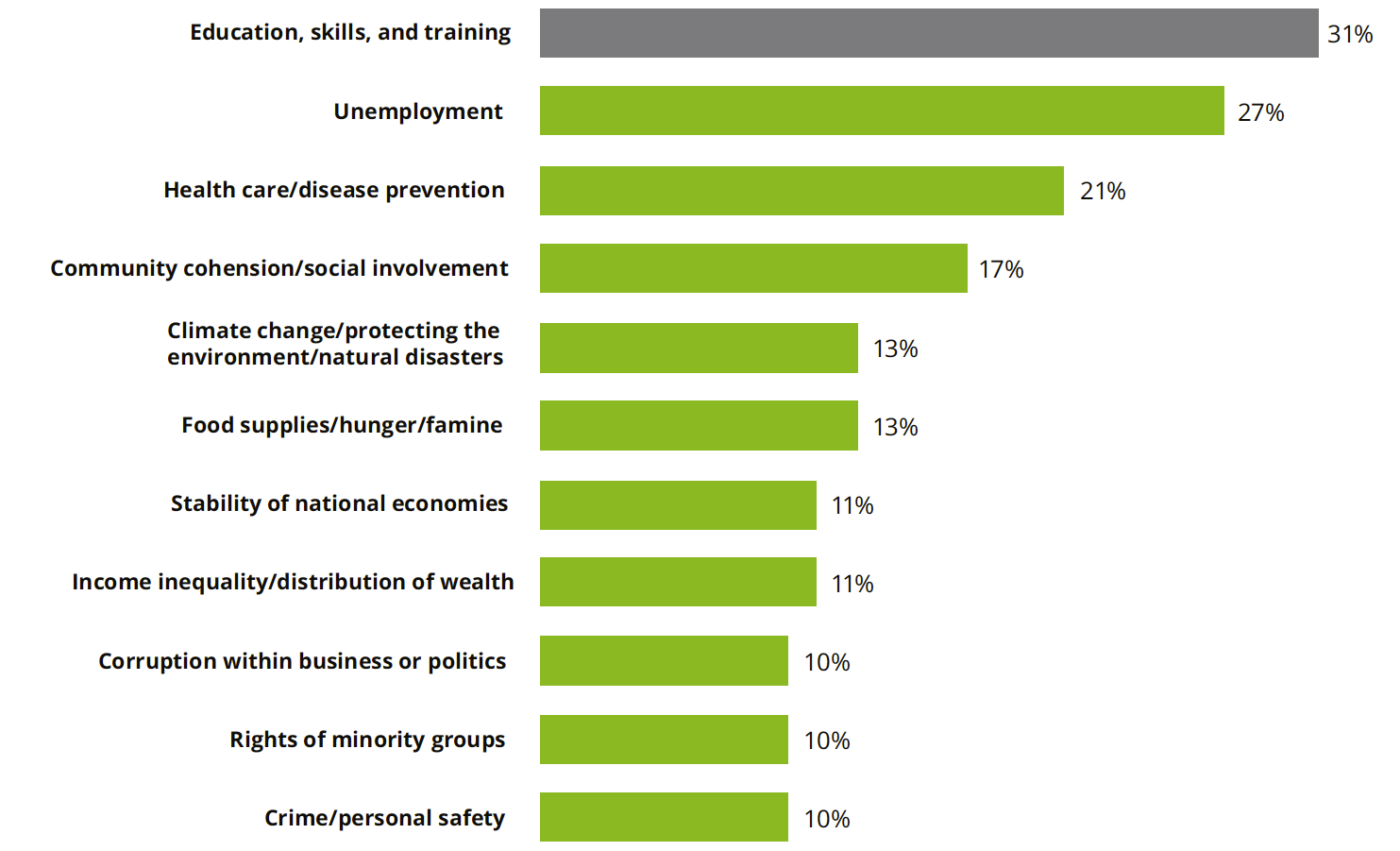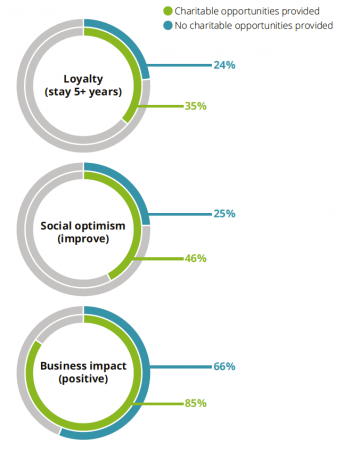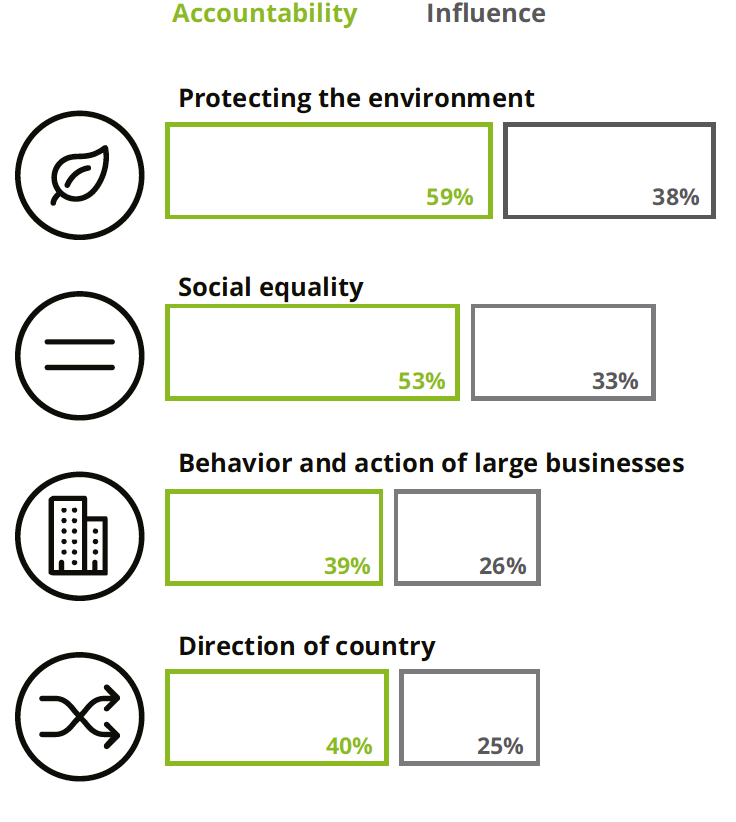Millennials believe business has a positive impact on society, but a survey from Deloitte says they expect more – presenting an opportunity for co-operative businesses to engage with youth by promoting their values and principles.
The consultancy, which interviewed those born after 1982 and who work in large organisations (over 100+ people), found that 76% regard business as a positive for social impact.
Studies such as the Wales Co-operative Centre’s recent Impact Report demonstrate the benefits that co-operative business can deliver in this area – which gives the movement incentive to reach out of the nine in 10 (86%) millennials who believe the success of a business should be measured in terms of more than just financial performance.
The Deloitte study also found that a large majority of employees (82%) report that their employers are directly involved in social impact initiatives.
Across organisations of all sizes, the most common issues with which businesses engage are education, skills, and training; unemployment; and health care/disease prevention, according to the report.
However, businesses are falling short of their potential to address the societal challenges that are most important to millennials. In particular, only 10 to 13% of respondents feel their organisations are addressing income inequality/distribution of wealth, corruption within business or politics, or climate change and the environment.
Millennials’ employers most supportive of education, employment, and health care initiatives
Percentage of employers currently addressing the following issues

The report found there is a strong correlation with positive employee sentiment. For example, millennials intend to stay longer with those employers that engage with social issues.
Millennials are sceptical with respect to the motivations of large, multinational businesses that support charities or otherwise contribute to social initiatives. When asked to judge their motivation on a scale ranging from one (purely to improve their reputations) to 10 (genuine desire to change things for the better), the average score is 5.4. Fewer than four in 10 (36%) give a score of seven or more. The corresponding figures regarding the motivations of their own organisations are 6.5 and 55%. Deloitte says this suggests larger businesses need to communicate better and involve people more if millennials are to look more favourably upon businesses’ corporate responsibility activities.
Those people (54%) who have been provided with opportunities to contribute to good causes in the workplace have much greater levels of loyalty and a positive opinion of business behaviour. Of those, 35% of people stay loyal to their company for more than five years, as opposed to just 24% who provide no charitable opportunities.
Empowered millennials are more optimistic and loyal

When looking at the sense of empowerment, many millennials feel unable to exert any meaningful influence on some of the society’s biggest challenges; but, in the workforce, they can feel a greater sense of control – an active participant rather than a bystander.
Where workplace opportunities are offered, millennials are significantly more likely to say they can influence social equality, the environment and the behaviour of big businesses.
On ‘big issues’, millennials feel more accountable than influential
Percent with a great deal /fair amount of influence and accountability upon the following

The survey also found there has been an improvement in the perceptions of how business conducts itself.
- 59% believe business to focus on their own agendas rather than considering the wider society – a fall of five percentage points on last year (64%)
- 65% says they behave in an ethical manner – an increase from 58% in 2016
- 62% agree that leaders are committed to helping improve society – a climb from 57%, previously
- 50% believe organisations have no ambition beyond wanting to make money – a drop from 54% last year.
Millennials see business as a broadly positive force that behaves in an increasingly responsible way, according to the report. But, this generally positive evaluation is tempered when the actual impact large enterprises are thought to make.
In presenting the report, Deloitte said: “For businesses seeking to attract, develop, and retain millennial talent, this report offers a guide to their concerns and motivations. It reinforces the connection made between purpose and retention while outlining how increased use of flexible working arrangements and automation are likely to impact millennials’ attitudes and performance.”